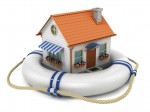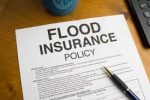What Is Not Covered Under Standard Homeowners Insurance?


Serving South Florida


Filed under: Blog, Boca Raton real estate, Exclusive Buyer Agent, First Time Homebuyers, Flood Insurance, Florida Real Estate, Home Buyer Advice, Home Buyers, Home Maintenance, Homebuyer Advice, Homeowners Insurance, Insurance Claims, Real Estate, Real Estate Investment, real estate news, Real estate trends, South Florida Real Estate by Kim Bregman
Comments Off on What Is Not Covered Under Standard Homeowners Insurance?

If a flood swamps your home, will insurance cover the damage? That depends on the value of your home, the amount of water damage and whether you have a flood insurance policy.
Let’s look at some persistent myths about flood insurance.
Myth: You must live in a flood plain to get coverage.
If you live in a flood plain, your mortgage company will likely require you to buy flood insurance. But you can purchase it even if you don’t live within a flood zone. “Almost anybody can get flood insurance who wants flood insurance,” says Chris Hackett, director of personal lines for the Property Casualty Insurers Association of America. The price through the federal flood insurance program is based on standardized rates and depends on the home’s value and whether or not it’s in a flood plain.
Myth: Flood insurance covers everything.
When it comes to the physical structure of your house, federal flood insurance policies top out at $250,000. If you have a $300,000 house that’s a total loss because of a flood, the most you can recoup through the program is $250,000 to cover the structure itself. For your personal possessions, the cap is $100,000 under the federal program.
Myth: My homeowners policy covers floods.
“Unfortunately, a lot of folks may be under the impression that their standard homeowners policy might cover flood damage,” Hackett says. But the standard policy does not! The typical home insurance policy doesn’t cover earthquakes or floods. So a homeowner wanting coverage for either of those disasters will need to pick up separate, specific coverage against those types of disasters.
Myth: Water damage is water damage. When it comes to your insurance, not all water damage is the same.
If there’s a storm and your “roof comes off and water comes through, that would be covered under your homeowners policy,” Hackett says. “Versus a flood situation where the water is rising from an over flowing riverbank overflows or an unnatural amount of rain that is rising from the street.
Myth: Flood maps don’t change.
Flood plains (and flood plain maps) change and evolve. Just because you weren’t in a flood plain when you bought your home a few years ago doesn’t mean you’re not in one now.
For more information, visit FloodSmart.gov.
Filed under: Blog, Exclusive Buyer Agent, Flood Insurance, Florida Real Estate, Home Buyer Advice, Home Buyers, Homebuyer Advice, Homeowners Insurance, Insurance Claims, Real Estate, Real Estate Investment, real estate news, South Florida Real Estate by Kim Bregman
Comments Off on Flood insurance: Facts and Fiction

Florida, Georgia and North Carolina residents affected by Hurricane Matthew will begin surveying damages to their property and belongings.
Florida Chief Financial Officer Jeff Atwater and Insurance Commissioner David Altmaier put together the following tips to help Floridians begin the process of filing insurance claims for damaged property and belongings and this may prove useful to residents in other states as well:
Tip 1: Locate all applicable insurance policies. This may include a homeowners’ policy, flood policy (flood coverage is not covered under a typical homeowners’ policy and is separate coverage), and an automobile policy (may cover damage to your car from flooding).
Tip 2: Document all damaged property and belongings. Take photos or shoot video footage before attempting any temporary repairs. When you file an insurance claim, you may be asked for visual documentation of damages.
A photographic home inventory is a handy resource for this situation. A free smartphone app developed by the National Association of Insurance Commissioners called “MyHome Scr.APP.book” can help you take and store a room-by-room log of photos.
Tip 3: Contact your insurance company or insurance agent as soon as possible to report damages.Insurance policies require prompt reporting of claims, so it is important to act as soon as possible.
Tip 4: Cover damaged areas exposed to the elements to prevent further damage. Your insurance company may reimburse the expense of these temporary repairs, so keep all receipts.
Do not dispose of any damaged personal property until your insurance company adjuster has had an opportunity to survey it.
Florida consumers who have questions about their insurance coverage are encouraged to call CFO Atwater’s Department of Financial Services, Division of Consumer Services’ Insurance Helpline. Helpline experts can be reached by calling 1-877-MY-FL-CFO (1- 877-693-5236), or online at: myfloridacfo.com/hurricanematthew.
Filed under: Blog, Exclusive Buyer Agent, First Time Homebuyers, Florida Real Estate, Home Buyer Advice, Home Buyers, Home Maintenance, Homebuyer Advice, Insurance Claims, Real Estate, real estate news, South Florida Real Estate by Kim Bregman
Comments Off on Managing the post-storm insurance claims process

When buying a home, most people focus on how much the home costs and what interest rate they can get on the loan. While understanding the lending process is very important, the other fees that home buyers overlook when it comes to their home purchase.
There are some fees that will require up-front payment. Other fees may be rolled into the loan for your home. It’s important to understand the difference and know what you’ll be expected to pay.
Earnest Money Deposit
To prove you’re “earnest” in your purchase commitment, a buyer can expect to deposit to a trust account 1% to 2% of the total purchase price as an earnest money deposit within days of entering into a contract.This amount can change depending on market factors. If demand in your area is high, a seller could expect a larger deposit. If the market is cold, a seller could be happy with less than 1%.
Other governing factors like state limitations and rules can cap how much earnest money a seller can ask for.
Escrow account
An escrow account is basically a way for your mortgage company to make sure you have enough money to cover related taxes, insurance and possibly mortgage insurance. The amount you need to pay varies by location, lender, and loan type. It could cover costs for a few months to a year.
If you only provide a small down payment, you may be required to purchase private mortgage insurance. Private mortgage insurance, commonly referred to as PMI, is typically provided by a private mortgage insurance company to protect lenders against loss if a borrower defaults.
Sometimes this means you are required to pay a full year’s worth at time of purchase, or it will be rolled into your monthly payment.
Escrow accounts are common for loans with less than a 20% down payment and mandatory for FHA loans, but it’s not required for VA loans.
Origination Fees & Points
The origination fee is the price you pay the loan officer or broker for completing the loan, and it includes underwriting, originating, and processing costs.
The origination fee is a small percentage of the total loan. A typical origination fee is about 1%, but it can vary. You should shop lenders for more than interest rate, but all of the fees associated with the loan.
Inspections
You want to be assured your new home is structurally sound and free of defects before you complete the purchase. Those assurances come with a price.
Attorney
Some states, such as North Carolina, require an attorney to be present at closing. In other states, such as Florida, this is optional. If you use a lawyer, expect to cover the costs, which vary by area and lawyer and what the attorney is being asked to do.
Credit check
Just because you can get your credit report for free doesn’t mean your lender can (and they will actually pull all three). You have to reimburse the lender, usually around for these reports that usually run about $30.
Insurance
If you live in a hazard-prone area, you might need to purchase extra insurance in addition to homeowners insurance, these can include wind and flood. Lenders will require that you purchase the required insurance to protect their investment. If you are a cash buyer, you have the option of buying insurance or self-insuring. Make sure you understand the risks.
Appraisal
Your lender will not approve a loan for a home without knowing what its fair market value is. They will determine this value based on an appraisal. Appraisal costs vary by market area and the size and complexity of the property. An appraisal will typically cost $250 to $1000.
Title Insurance
Title insurance covers you in the unlikely case that the person who sold you the house didn’t actually own it or if information on the title was false. Typically this is verified before the purchase of your home, but this insurance protects the lender or the buyer against loss arising from disputes over ownership of a property.
The lender will require you to have title insurance for the value of the loan. You are also required to have title insurance on the value of the property. Whether the buyer or seller pays for this is area specific and is a protocol not a mandate and can be negotiated as a condition of the contract.
Survey
A survey is not required in all instances, but your lender may require a professional surveyor to determine exactly where your property lines are drawn. Your attorney will also review the survey to ensure that there are no encroachments. Prices vary widely, but expect to pay at least $100.
Document preparation fees:
The lender, broker, Title Company or closing attorney will usually have a fee to cover the preparation of the required documents for the loan and closing paperwork. These fees are typically rolled in closing costs for the home and may be covered by either the homebuyer or seller.
State Recording Fees:
Depending on where you live, there may be a fee required for recording and holding the information regarding the sale.
Filed under: Blog, Exclusive Buyer Agent, First Time Homebuyers, Florida Real Estate, Home Buyer Advice, Home Buyers, Home Financing, Homebuyer Advice, House Closings, Mortgage Information, Real Estate, Real Estate Closings, real estate news, Real estate trends, Relocation, South Florida Real Estate, Title Insurance, western north carolina real estate by Kim Bregman
Comments Off on Common Fees When Buying A Home
 Kim N. Bregman
Kim N. BregmanAll information is provided by the licensed REALTOR®/Broker/Agent. This information is not verified for authenticity or accuracy and is not guaranteed. This website is not responsible or liable in any manner for any content posted herein or in connection with our services. Information is not guaranteed and must be confirmed by the end user.
Copyright © 2025 OPTIMA PROPERTIES. All Rights Reserved. Privacy Policy | Intellectual Property Rights | Sitemap | Real Estate Website Design & Internet Marketing by Agent Image